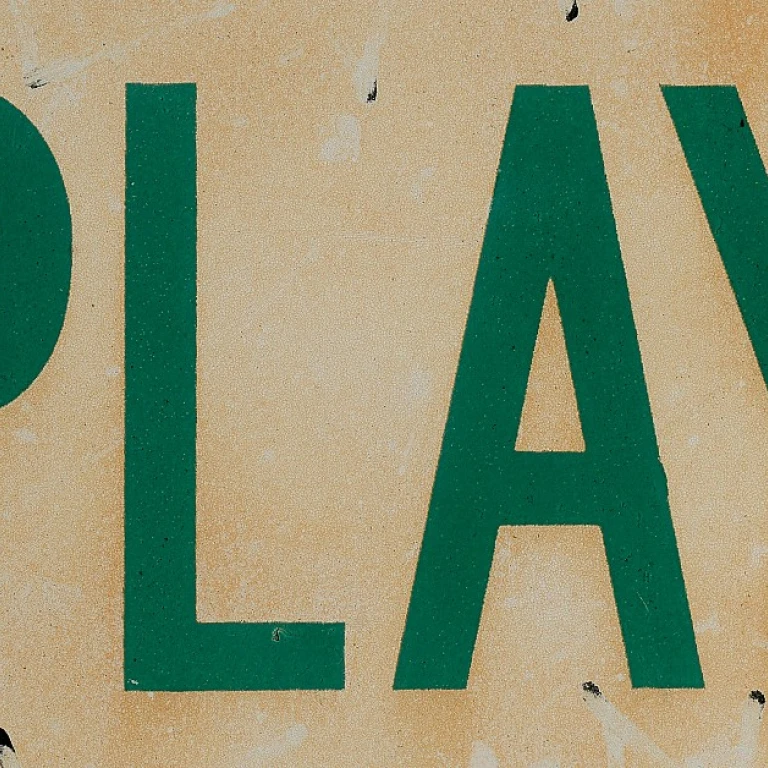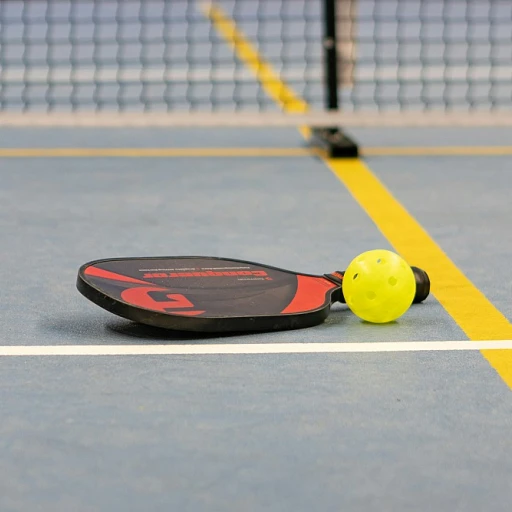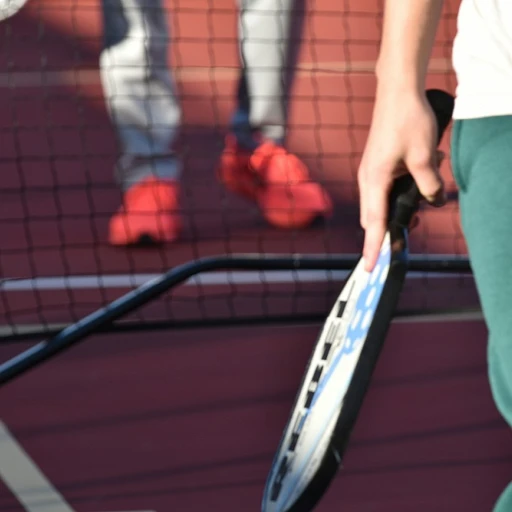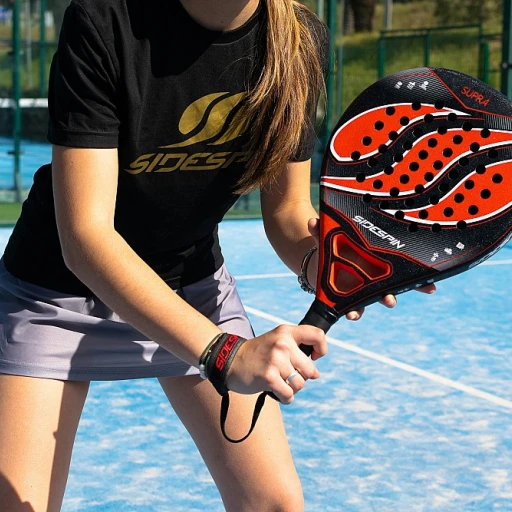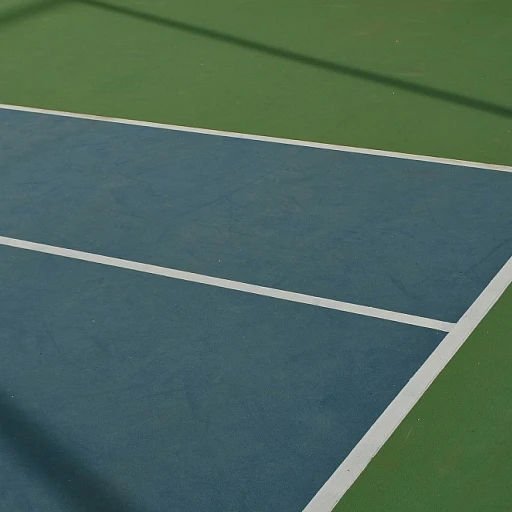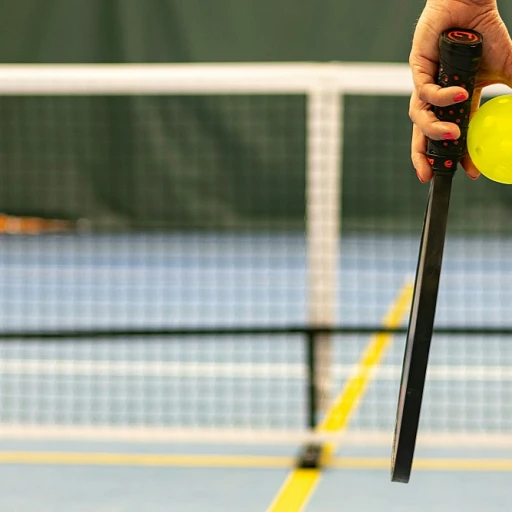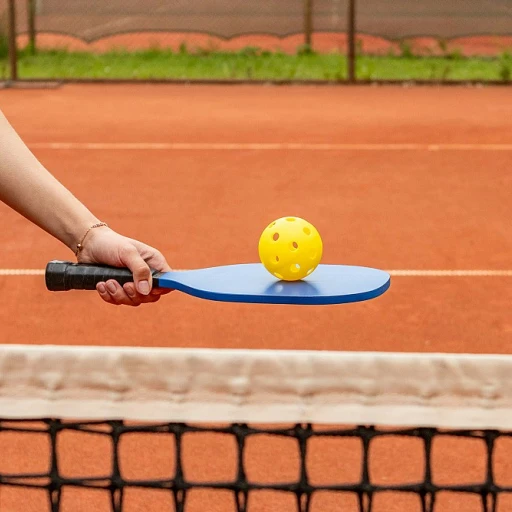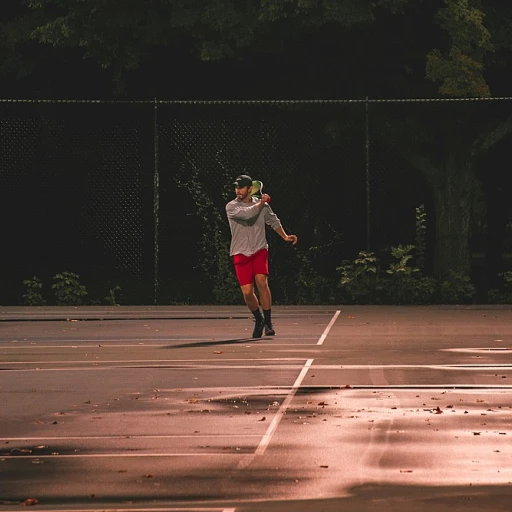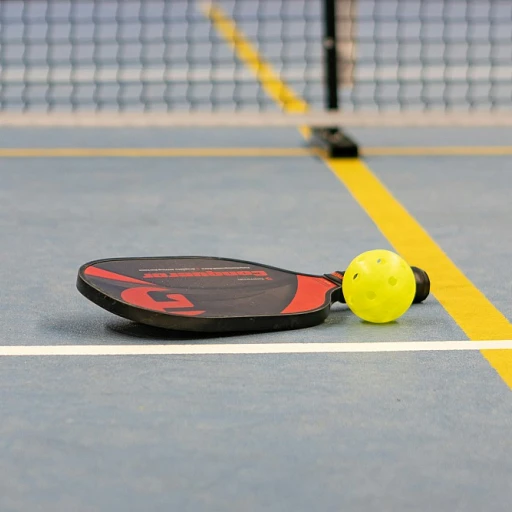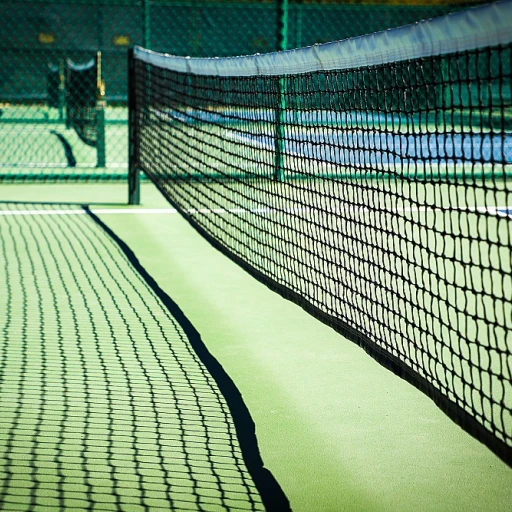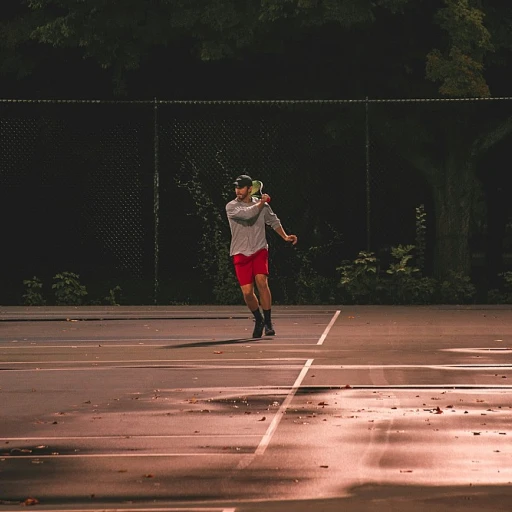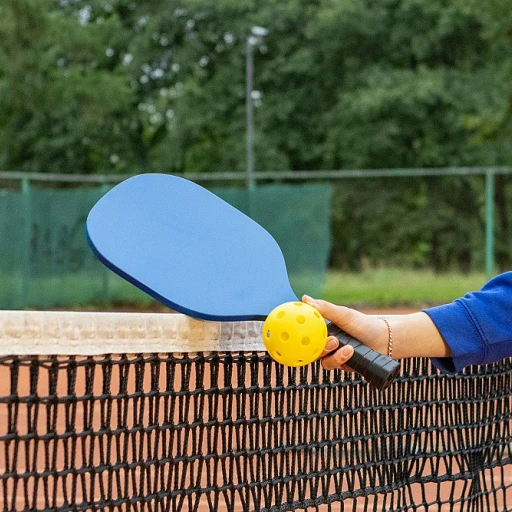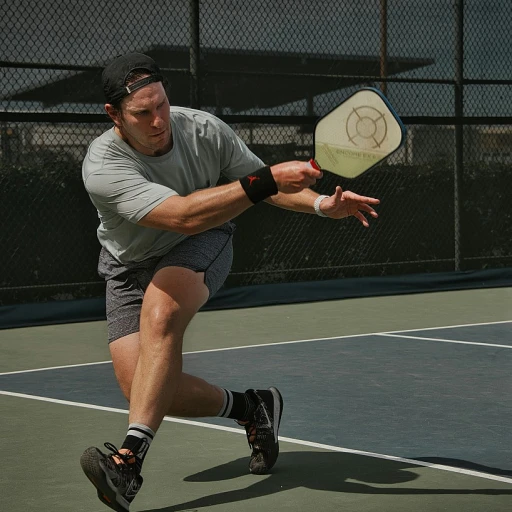
Introduction to Pickle Pad Franchising
Explore the Allure of Pickle Pad Franchising
Starting a pickleball-related franchise, such as a Pickle Pad, offers a unique opportunity to dive into the fastest growing sport in America. With pickleball gaining traction among players of all ages, the possibilities for enticing franchise opportunities are expanding. Businesses like Dill Dinkers, where paddle-driven fun meets innovative court designs, are setting the stage for new paths in the franchise sector. Franchising in the pickleball space brings a host of lucrative advantages, not the least of which is joining a supportive network. Successful brands such as Pickleball Kingdom have paved the way, offering a blueprint for franchisees to follow. As these active brands open doors for fresh ventures, they also offer a community of fellow franchise owners sharing insights and experience. In the realm of indoor facilities, ace pickleball courts stand as dynamic hubs for both players and multi-unit franchise operations. The communal vibe they generate enhances the business's appeal and helps attract a steady stream of customers. Indoor active environments like these are rebounding from broader lifestyle shifts and social play trends, offering recreational appeal that translates into a rewarding pickleball business experience. Whether you're considering the opening of your own pickle pad or are just intrigued by the potential of this trending sport, understanding the franchise process is key. Among essential steps to consider, grasping the necessary initial investment sets the stage for a profitable dive into the pickleball franchising world. For those ready to invest, options abound when it comes to building the foundations for a successful pickleball venue. For further insights, exploring the benefits of portable flooring for pickleball courts can provide a detailed look into how flexible designs can enhance operational efficiency.Initial Investment Requirements
Breakdown of Financial Commitments
Starting a pickle pad franchise involves a comprehensive understanding of the financial commitments required. The initial investment plays a crucial role in setting the foundation for success. Here, we'll examine the key areas where your capital will be allocated, ensuring you have a clear picture of what to expect when embarking on this business venture.
- Real Estate and Construction: The location and construction of your indoor pickleball courts are among the significant costs. Whether you opt for indoor active facilities or a versatile space offering multiple unit opportunities, securing an appropriate venue is paramount. For an in-depth exploration of the financial aspects involved in building a pickleball court, check the costs of building a pickleball court.
- Equipment and Branding: Engaging with reputable pickleball brands such as Dill Dinkers or Ace Pickleball will ensure your franchise's credibility. Investing in top-notch equipment will enhance the experience for players, leading to higher satisfaction and customer retention.
- Initial Inventory: Stocking up on essential items—such as paddles, balls, and apparel—will require a calculated expenditure. Franchisees benefit from the collective buying power of the franchise network, ensuring competitive pricing and consistent supply.
- Franchise Fees: As with any franchise business, there are costs associated with joining a recognized pickleball franchise system. These fees cover the use of the brand, operational support, and ongoing training, which are crucial for long-term success.
Understanding these investment areas will prepare potential franchise owners to effectively manage their initial investment, paving the way for a sustainable pickle pad business.
Ongoing Operational Expenses
Operational Overheads and Management Costs
When diving into the world of pickleball franchises, understanding the ongoing operational expenses is crucial for ensuring the business’s sustainability. While the initial investment gives you a foothold, operational expenses keep the pickle pad business thriving once doors are open.
One of the primary ongoing costs is staffing. Franchisees need to budget for wages of coaches, administrative staff, and marketing personnel to manage the courts and ensure a delightful experience for players. Tailoring the facilities to meet the expectations of customers is key, often entailing additional expenses in maintenance and enhancements of indoor courts.
Utility bills represent another significant operational cost, especially for indoor pickleball courts that require consistent climate control to offer an ideal playing experience, whether it's through air conditioning in the summer or heating in the winter.
Additionally, a well-rounded marketing strategy to attract new players and maintain membership loyalty involves consistent expenditure. Franchises often pool resources for collective brand campaigns, although individual branches might also need their own localized marketing investments.
Licensing fees and management fees are further recurrent expenses, which are part and parcel of most franchise agreements. These fees cover the extensive brand, operational support, and software systems that permit franchise owners to leverage the established reputation and systems of the pickleball franchise network, from active brands like Ace Pickleball to Pickleball Kingdom.
Lastly, costs linked with real estate, such as leasing or mortgage payments for pickleball club facilities, can constitute a significant portion of the monthly outgoings. Franchise owners need to remain agile in adjusting strategies to optimize costs without compromising the quality of service and the player experience.
Revenue Streams and Profit Potential
Exploring Revenue Streams in Pickle Pad Franchising
When diving into the pickleball franchise world, understanding the potential revenue streams is crucial for aspiring franchisees. The pickleball business, especially with brands like Pickle Pad, offers diverse opportunities to generate income. Here’s a closer look at how franchise owners can maximize their earnings:
- Membership Fees: Many pickleball clubs, including indoor facilities, operate on a membership model. This provides a steady stream of income as players pay monthly or annual fees to access the courts and facilities.
- Hourly Court Rentals: For those who prefer flexibility, offering hourly rentals of indoor pickleball courts can attract players who are not ready to commit to a membership. This model is popular among pickleball franchises like Pickleball Kingdom and Dill Dinkers.
- Merchandise Sales: Selling branded merchandise, such as paddles, apparel, and accessories, can significantly boost revenue. Active brands within the franchise often offer support in stocking and marketing these products.
- Hosting Tournaments and Events: Organizing pickleball games and tournaments can draw large crowds and increase visibility. These events not only generate direct revenue but also enhance the overall pickleball experience for players.
- Food and Beverage Services: Many indoor pickleball facilities, like Crush Yard, offer food and beverage options. This additional service can enhance the player experience and provide another revenue stream.
Understanding these revenue streams is essential for franchisees aiming to make the most of their initial investment. With the right strategies, a pickleball franchise can become a lucrative venture in the fastest growing sport sector.
Challenges and Considerations
Identifying Business Obstacles for Franchise-Profit Partnerships
Starting a pickle pad franchise, such as ace pickleball or other emerging brands like pickleball kingdom and dill dinkers, undoubtedly presents unique challenges despite its status among the fastest growing franchise opportunities. Aspiring franchisees must be conscious of several key considerations that can impact success.- Competition and Market Saturation: Given the increasing popularity of pickleball, the competition among pickleball franchises is on the rise. Prospective franchise owners must conduct thorough market research to assess saturation levels in their target area. Evaluating existing indoor and outdoor courts and understanding the local demand can be crucial to positioning your pickleball business effectively.
- Real Estate Challenges: Securing appropriate real estate for indoor pickleball courts can pose significant challenges, often demanding strict adherence to zoning regulations and obtaining various permits. Additionally, the cost of opening and maintaining quality facilities can inflate your initial investment. Look for locations that offer easy access and ample parking to attract more players to your pickle pad.
- Ongoing Operational Management: Successfully managing the operational expenses of running indoor active spaces involves strategic planning. Franchisees must work diligently to maintain operational efficiency while providing the ideal experience for new and seasoned players. Properly managing games schedules, staffing, and customer support will ensure sustained player satisfaction and loyalty.
- Brand Identity and Differentiation: With active brands like picklr and crush yard making notable marks, developing a strong brand identity is vital. Franchisees should also explore how they can differentiate their pickleball club from other brands while maintaining ties with the core values that ace pickleball and similar companies emphasize.
- Consistent Revenue Stream Development: Aspects like organizing events, offering training packages, or launching pickleball-themed products can enhance revenue streams, but these require solid planning and support from the franchisor. Multi-unit ownership could also amplify income potentials, yet it demands care to avoid overextension of resources.
Tips for Success in Pickle Pad Franchising
Strategies for Thriving in the Pickleball Franchise World
Starting a franchise in the ever-expanding world of pickleball presents an exciting business opportunity. However, key strategies need to be highlighted to ensure your pickle pad franchise becomes a successful venture.- Prioritize Player Experience: Creating an engaging and enjoyable atmosphere is paramount. Your facilities should provide a welcoming environment for both seasoned players and newcomers. Consider offering unique events, tournaments, or leagues to attract a wide array of players.
- Leverage Support from Established Brands: Whether it's partnering with active brands or seeking guidance from successful franchises like Dill Dinkers or Ace Pickleball, tapping into the support offered by established brands can provide a competitive edge. Utilize their expertise to optimize operations.
- Invest in Quality Indoor Courts: The indoor active space is a rapidly developing segment of the pickleball world. Ensuring your courts meet high standards in terms of construction, comfort, and safety will appeal to serious players and promote long-term business growth.
- Maximize Multi-Unit Opportunities: Exploring the potential for multi-unit operations can amplify your revenue streams. Franchise owners who effectively manage multiple venues often see significant gains, benefiting from shared resources and streamlined processes.
- Be Clear About Real Estate Considerations: Securing the right location is pivotal. Aim for areas with high foot traffic to draw in both dedicated players and casual participants. Utilize insights into the local market to ensure your pickleball business flourishes.
- Stay Adaptive and Open to Changes: The pickleball franchise landscape can evolve rapidly. Stay flexible and up-to-date with industry trends to remain competitive. Embrace innovations and shifts in player preferences to sustain and grow your business.

